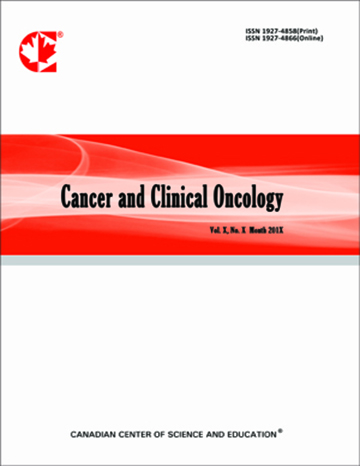Outcome of Multimodality Therapy for Elderly Colorectal Cancer Patients
- Yasuhiro Inoue
- Yuji Toiyama
- Koji Tanaka
- Yasuhiko Mohri
- Masato Kusunoki
Abstract
The aim of this study was to analyze patterns of multimodality therapy in elderly patients with advanced colorectal cancer. We enrolled 272 patients with colorectal cancer. All patients received chemotherapy and some patients received secondary cytoreductive surgery and/or radiofrequency ablation. We compared differences between elderly patients (age >=75 years) and non-elderly patients (age <75 years), especially in relation to multimodality therapy. There were no significant differences in cancer-specific survival between elderly (n = 37) and non-elderly patients (n = 235).Twenty-seven percent of elderly and 35% of non-elderly patients received multimodality therapy, which resulted in prolonged survival. Although the main chemotherapy regimen was the same in both groups who received multimodality therapy, elderly patients who received chemotherapy alone seemed to be under-treated. For elderly patients, prognostic factors were host-related, such as comorbidities, whereas for non-elderly patients prognostic factors were tumor-related. Comorbidities and modified Glasgow Prognostic Score may be prognostic indicators in elderly patients receiving multimodality therapy. In conclusion, chronological age alone should not contraindicate multimodality therapy of colorectal cancer in elderly patients. Appropriate selection criteria for multimodality therapy in elderly patients should include not only tumor characteristics, but also host- and treatment-related factors.
- Full Text:
 PDF
PDF
- DOI:10.5539/cco.v2n2p70
Journal Metrics
Google-based Impact Factor (2018): 3.94
h-index (August 2018): 8
i10-index (August 2018): 6
h5-index (August 2018): N/A
h5-median(August 2018): N/A
(The data was calculated based on Google Scholar Citations. Click Here to Learn More. )
Index
Contact
- Lexie GreyEditorial Assistant
- cco@ccsenet.org
